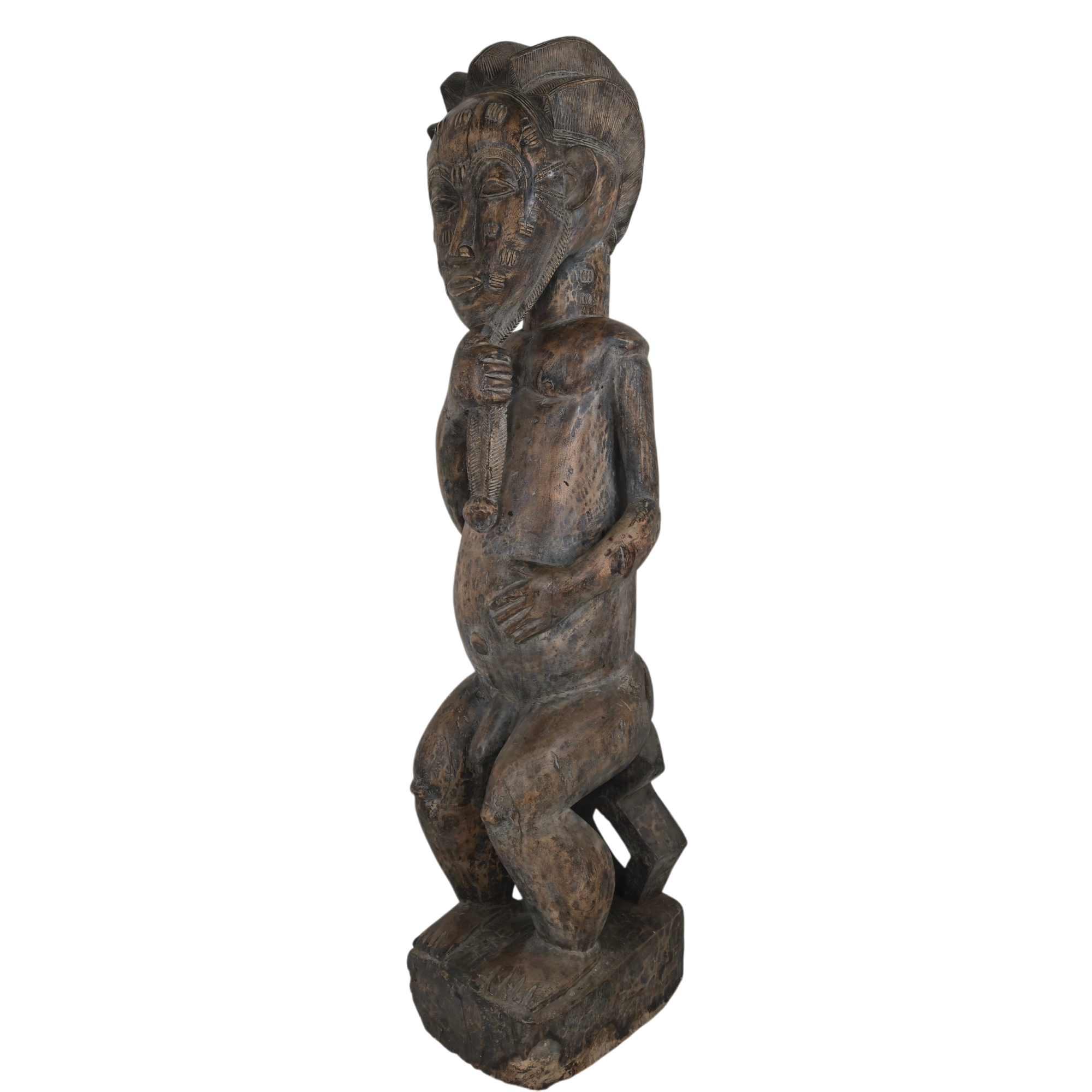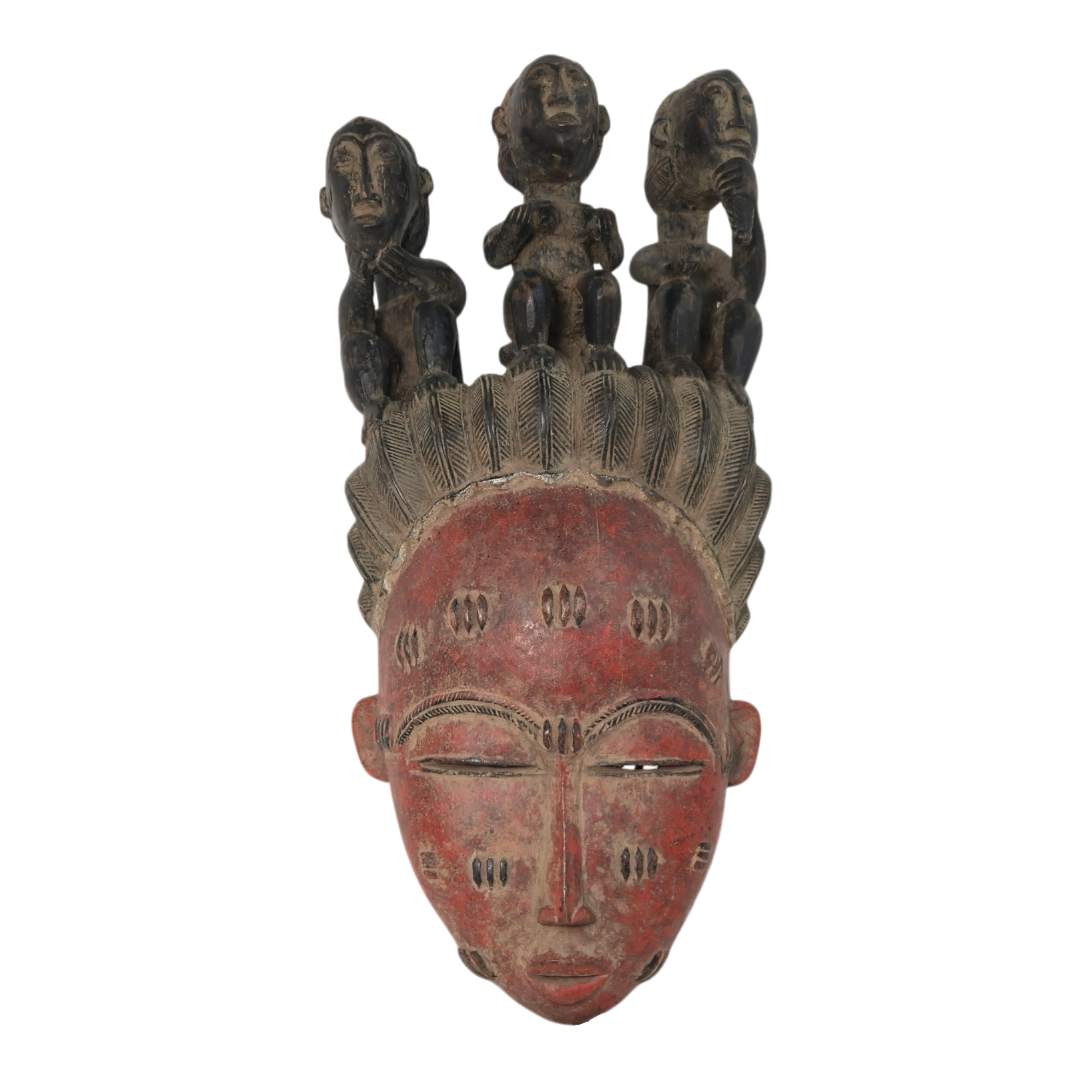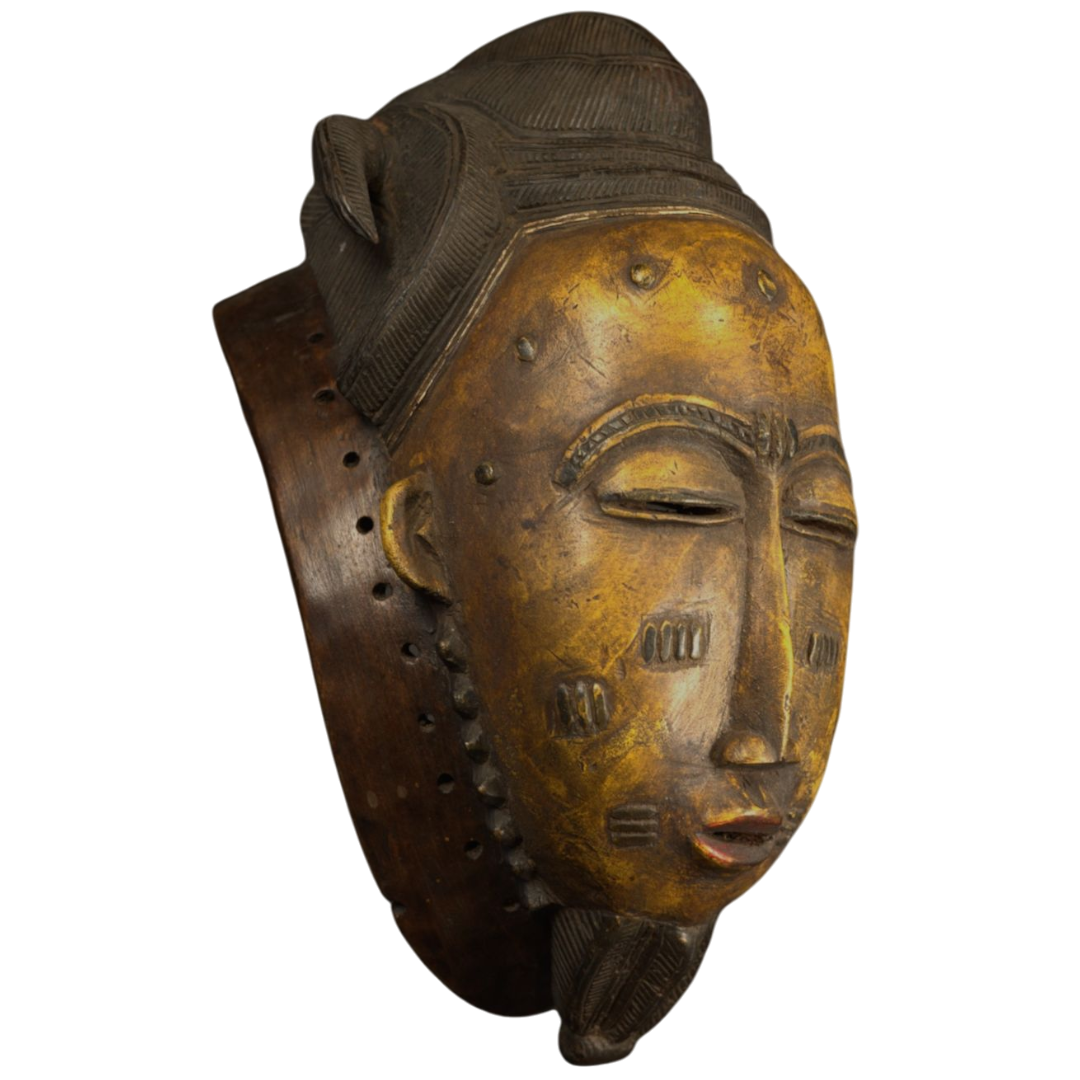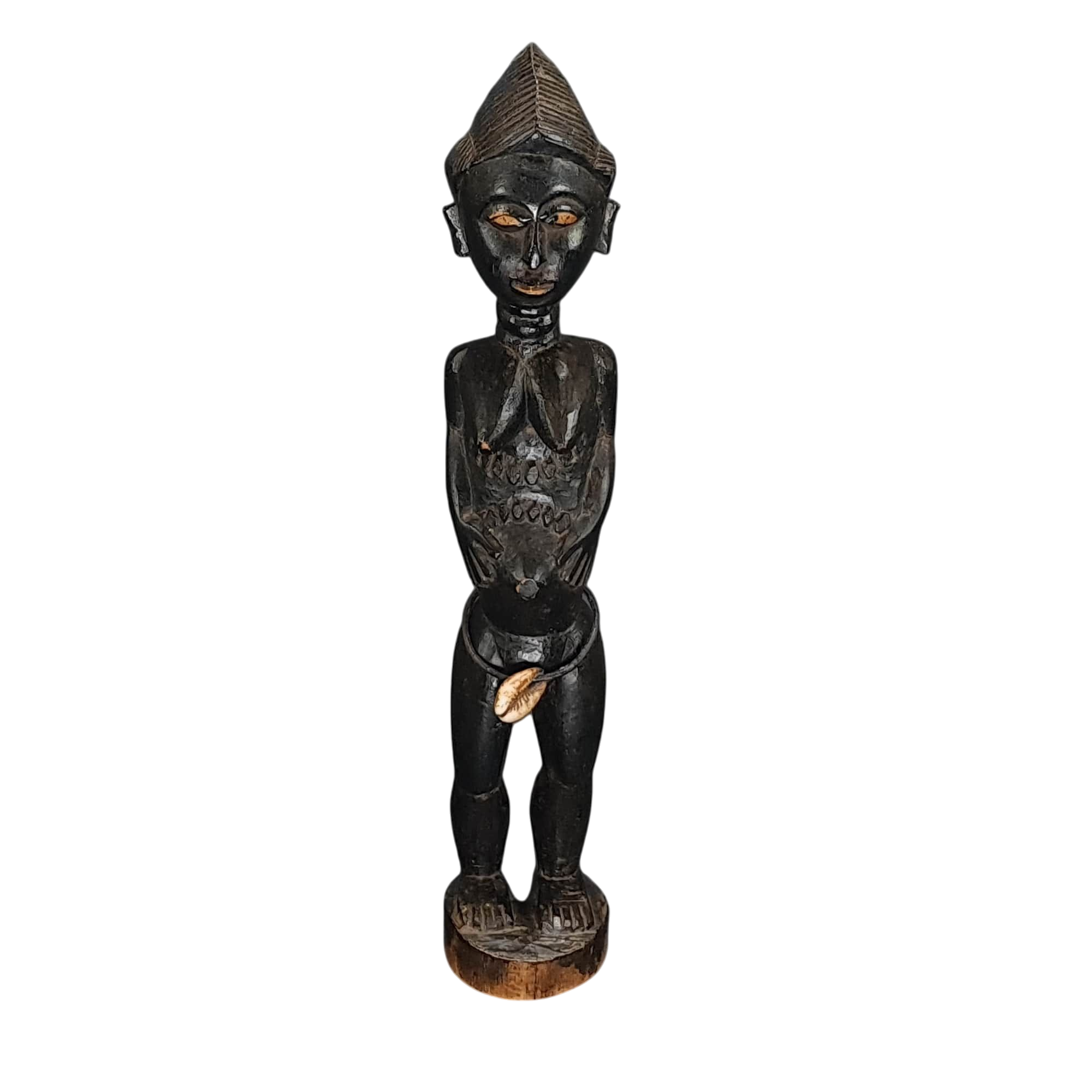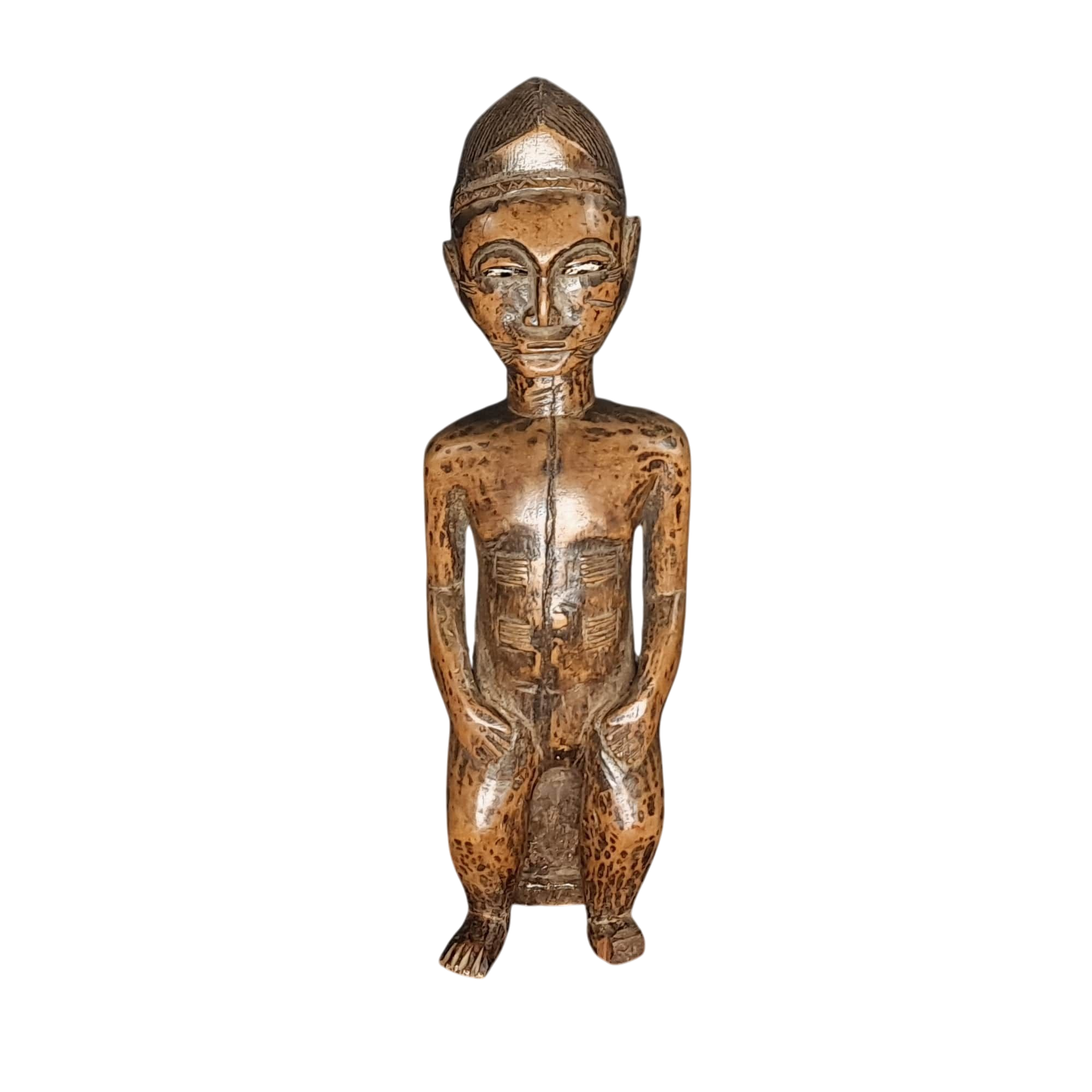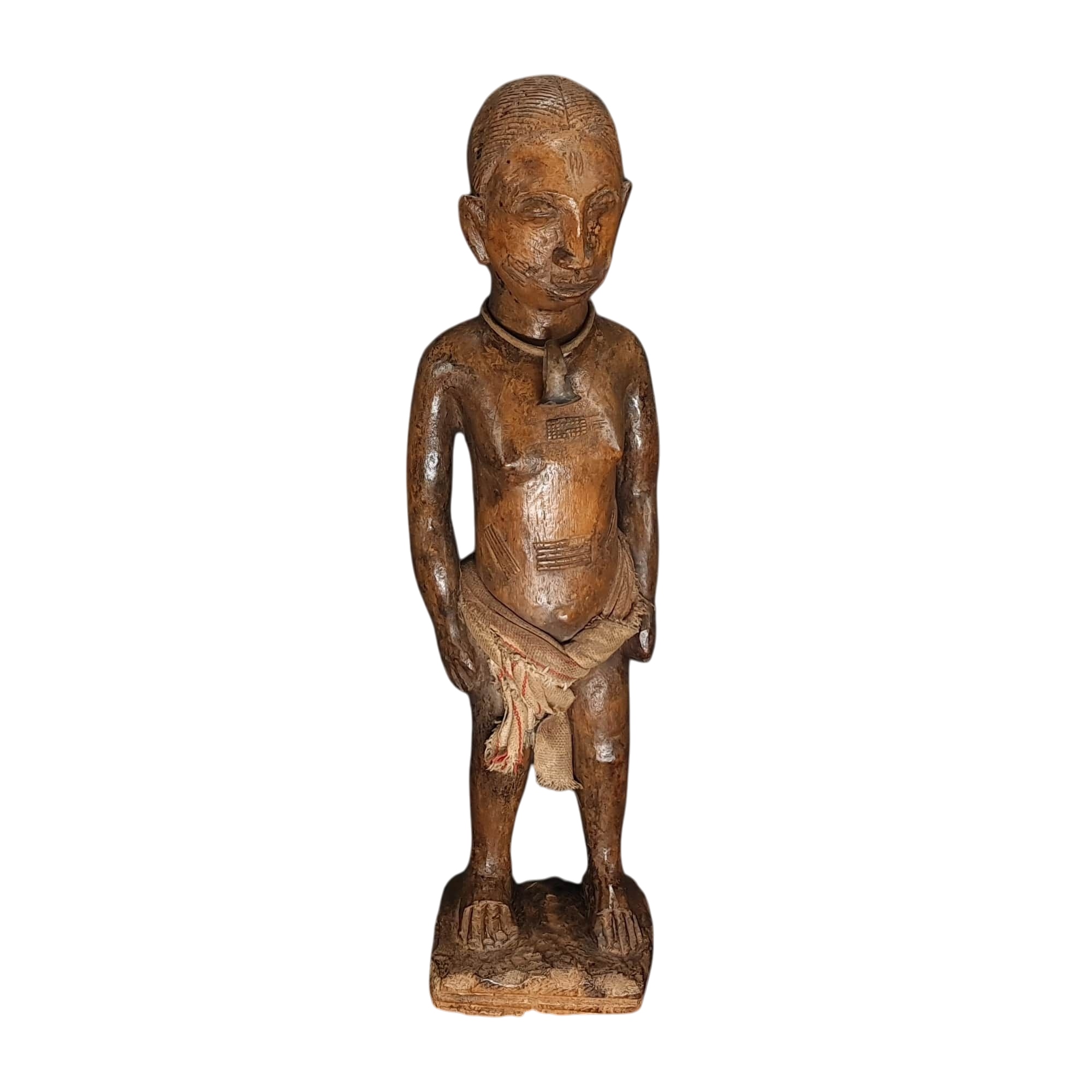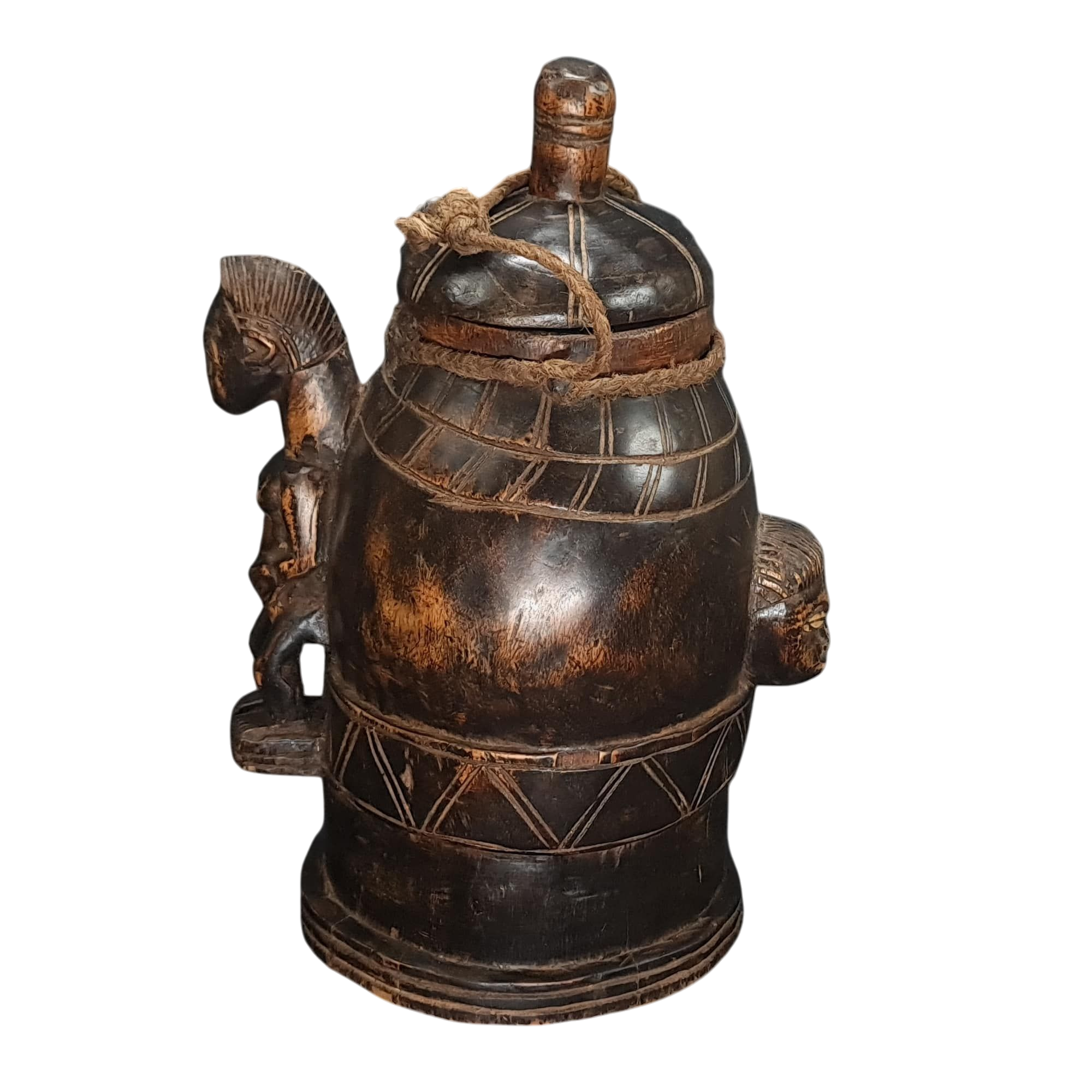The Baoule Ethnic Group
The Baoulé are one of the most prominent ethnic groups of Côte d’Ivoire, part of the larger Akan cultural family which also includes the Ashanti and Agni peoples. Known for their refined wooden sculptures, rich oral traditions, and structured social systems, the Baoulé have played a central role in Ivorian history and identity.
Origins and Location
The Baoulé people originated from the Ashanti kingdom in present-day Ghana. According to oral tradition, they migrated westward during the 18th century under Queen Pokou, who is said to have sacrificed her son to allow her people to cross a river — a foundational myth in Baoulé identity.
Today, the Baoulé live mainly in central Côte d’Ivoire, particularly in regions such as Bouaké, Yamoussoukro, and Sakassou.
Society and Political Structure
Baoulé society is hierarchical and organized around extended families and lineages, often under the authority of local chiefs. Power and lineage are generally patrilineal, though women also hold significant roles in the community’s spiritual and economic life.
The "Fa" divination system is used to guide important decisions, and traditional councils of elders maintain social order.
Language
The Baoulé speak Baoulé, a Kwa language within the Niger-Congo family. The language shares close ties with other Akan dialects and is widely spoken across central Côte d’Ivoire.
Beliefs and Spiritual Practices
The Baoulé practice a traditional religion based on the veneration of ancestors, nature spirits, and protective deities. While many Baoulé are now Christian (particularly Catholic), traditional spiritual beliefs remain deeply rooted.
Sculptures — such as blolo bla (spirit spouses) and waka sran (soul figures) — play a vital role in personal and community rituals. These figures are thought to influence fertility, well-being, and protection.
Art and Symbolism
Baoulé art is celebrated for its refined aesthetic, symmetry, and spiritual significance. Their wooden masks, statues, and decorative objects are internationally recognized. Notable artistic forms include:
• Goli masks: Used during ceremonies for protection and community unity.
• Mblo masks: Portrait masks honoring important individuals.
• Seated or standing statues: Often representing ancestors or spirits.
These works are typically carved in hardwood and often display scarification marks, elaborate hairstyles, and balanced proportions.
Economy and Daily Life
Traditionally, the Baoulé are farmers, cultivating cocoa, coffee, yams, and cassava. Their success in agriculture has made them one of the economically dominant groups in Côte d’Ivoire.
They also practice weaving, pottery, and small-scale trading, especially in local markets.
Music, Dance and Cultural Life
Baoulé cultural life is vibrant, with music and dance playing key roles in social and spiritual events. Drums, balafons, and flutes accompany rituals, festivals, and initiations.
Dances often serve as a bridge between the physical and spiritual world, allowing communication with ancestors and spirits.
Modernity and Continuity
Today, Baoulé culture continues to evolve while maintaining its core traditions. Urbanization and education have shaped younger generations, yet festivals, rituals, and family structures remain central to Baoulé identity.
The group’s ability to adapt without losing cultural roots is one of the most remarkable traits of the Baoulé people.
